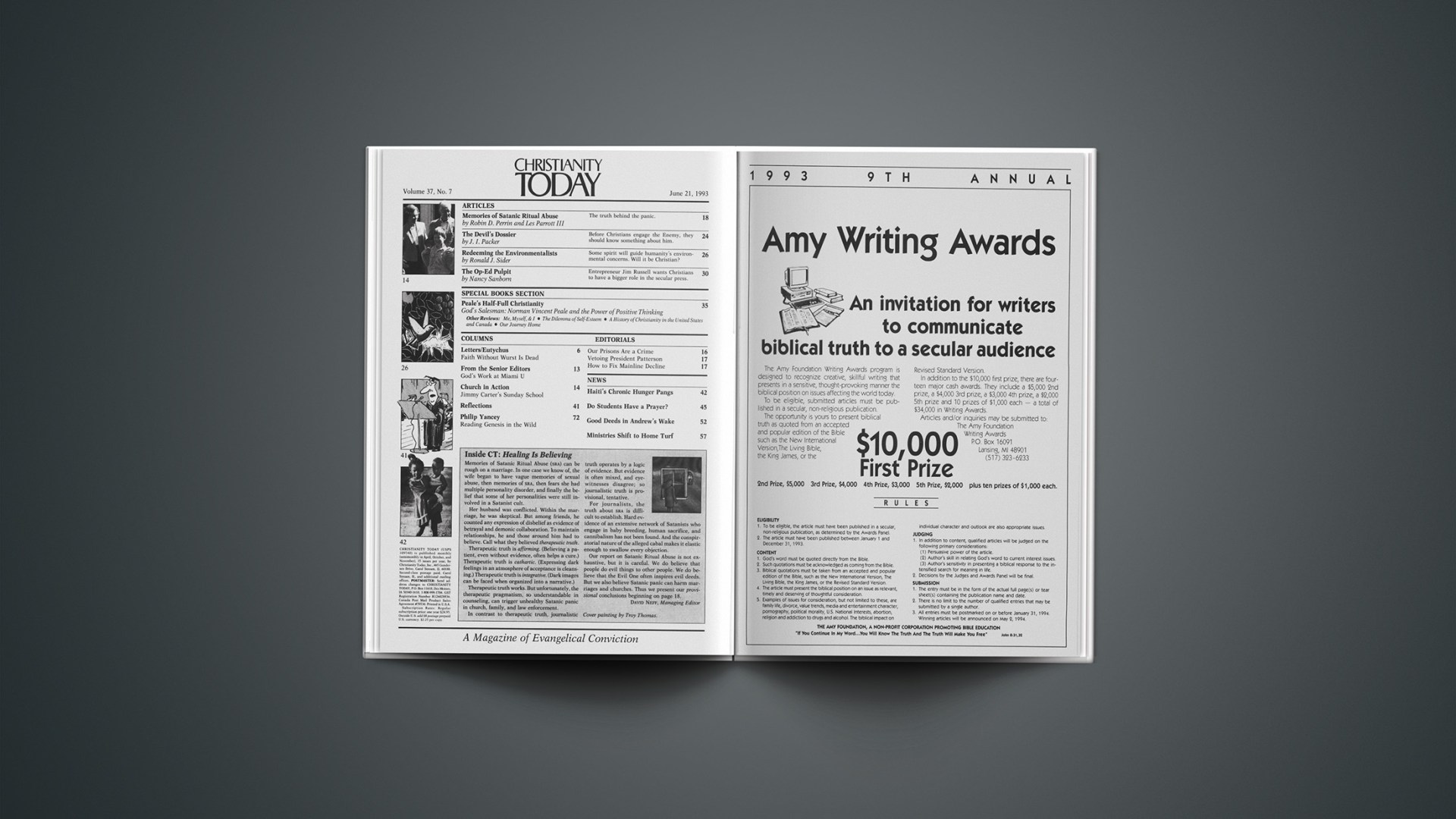Memories of Satanic Ritual Abuse (SRA) can be rough on a marriage. In one case we know of, the wife began to have vague memories of sexual abuse, then memories of SRA, then fears she had multiple personality disorder, and finally the belief that some of her personalities were still involved in a Satanist cult.
Her husband was conflicted. Within the marriage, he was skeptical. But among friends, he counted any expression of disbelief as evidence of betrayal and demonic collaboration. To maintain relationships, he and those around him had to believe. Call what they believed therapeutic truth.
Therapeutic truth is affirming. (Believing a patient, even without evidence, often helps a cure.) Therapeutic truth is cathartic. (Expressing dark feelings in an atmosphere of acceptance is cleansing.) Therapeutic truth is integrative. (Dark images can be faced when organized into a narrative.)
Therapeutic truth works. But unfortunately, the therapeutic pragmatism, so understandable in counseling, can trigger unhealthy Satanic panic in church, family, and law enforcement.
In contrast to therapeutic truth, journalistic truth operates by a logic of evidence. But evidence is often mixed, and eyewitnesses disagree; so journalistic truth is provisional, tentative.
For journalists, the truth about SRA is difficult to establish. Hard evidence of an extensive network of Satanists who engage in baby breeding, human sacrifice, and cannibalism has not been found. And the conspiratorial nature of the alleged cabal makes it elastic enough to swallow every objection.
Our report on Satanic Ritual Abuse is not exhaustive, but it is careful. We do believe that people do evil things to other people. We do believe that the Evil One often inspires evil deeds. But we also believe Satanic panic can harm marriages and churches. Thus we present our provisional conclusions beginning on page 18.
DAVID NEFF, Managing Editor










